Consults
What is a Consult?
A scheduled meeting with an MCRC Core Faculty (in person, or via phone or digital collaboration platforms like Zoom or Teams) who provides expert advice in a particular area to an individual and/or team of individuals that may include faculty, trainees/fellows, clinician/practitioners, lay community members, and/or staff.
To Request a Consult:
Please email mcrc@bu.edu to request a consult.
It is important that we match you with the appropriate expertise so please give a detailed description of your needs to include as much of the following information that related to your requests:
Project Deadline
Type of Project and Title of Project
Principle Investigator(s) Name
Institution
Brief description of needs
The type of your consultation request pertains to such as: study design, power/sample calculation, database set up, data/qualitative analysis, design.
Are there any programs in uses such as SAS, SPSS, Strata, R.
Alternatively, if you don’t have the full specifics and need assistance you may reach out to Sharon at mcrc@bu.edu with any questions.
You will receive a confirmation email within a few business days of your request.
MCRC Core Faculty and Expertise
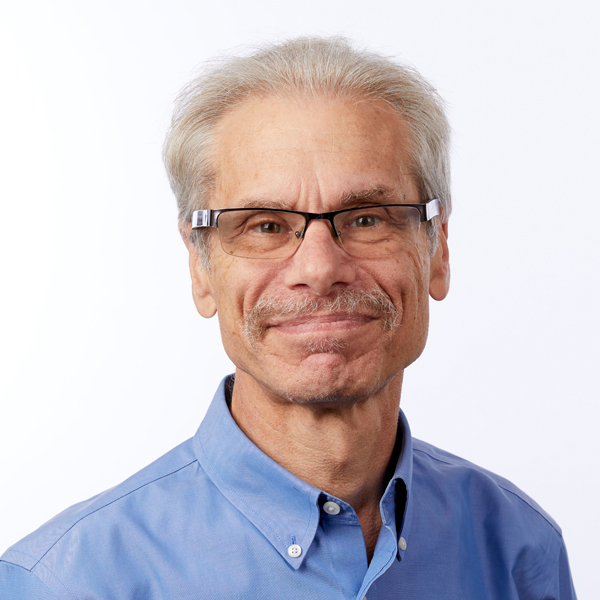
David Felson, MD, MPH research interests include: understanding how to prevent and treat osteoarthritis. Dr. Felson is interested in studying whether treatments for rheumatic diseases are effective and particularly in osteoarthritis, identifying biomechanical risk factors for disease and testing biomechanical treatments and characterizing MRI features of normal knees and knees with pain. He also studies outcome measurement in rheumatic disease and has focused in this work on rheumatoid arthritis trials.

Tuhina Neogi, MD, PhD is a rheumatologist and epidemiologist whose research has focused primarily on risk factors for knee osteoarthritis and gout, pain mechanisms in knee osteoarthritis, as well as methodologic issues of relevance for rheumatic diseases. Expertise includes: Osteoarthritis: epidemiology; risk factors; mechanisms of osteoarthritis-related pain; the role of bone in the pathophysiology of OA. Gout: epidemiology; risk factors and triggers for gout attacks; management of gout; consequences of gout and hyperuricemia. Classification criteria and outcome measures in rheumatic diseases. Novel methodology to address challenging epidemiologic issues.
 Maureen Dubreuil, MD is a rheumatologist in Boston, specializing in Spondyloarthritis. She works within the Rheumatology section at Boston University School of Medicine, where her research focuses on comorbidities and pharmacoepidemiology of spondyloarthritis. She serves as Education Chair and Board Member for the Spondyloarthritis Research and Treatment Network (SPARTAN), is a Medical Advisor for the Spondylitis Association of America, and is a member of the Assessment of Spondyloarthritis International Society (ASAS). She is a site investigator for the international CLASSIC study and the PULSAR spondyloarthritis registry.
Maureen Dubreuil, MD is a rheumatologist in Boston, specializing in Spondyloarthritis. She works within the Rheumatology section at Boston University School of Medicine, where her research focuses on comorbidities and pharmacoepidemiology of spondyloarthritis. She serves as Education Chair and Board Member for the Spondyloarthritis Research and Treatment Network (SPARTAN), is a Medical Advisor for the Spondylitis Association of America, and is a member of the Assessment of Spondyloarthritis International Society (ASAS). She is a site investigator for the international CLASSIC study and the PULSAR spondyloarthritis registry.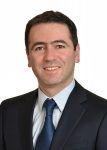
Reza Jafarzadeh, PhD is the Director of Clinical Research and Data Analysis Core and a member of Arthritis & Autoimmune Disease Center at BU School of Medicine. His research revolves around the application of modern analytical techniques for causal inference from observational data. He has applied these statistical methods to OA cohorts to develop long-term intervention strategies based on the emulation of randomized trials using non-randomized observational data. Additionally, he is interested in observational studies using electronic health records and claims-based health administrative data. He also has expertise on developing Bayesian models and methods for diagnostic tests evaluation and prevalence estimation in the absence of a perfect reference standard.
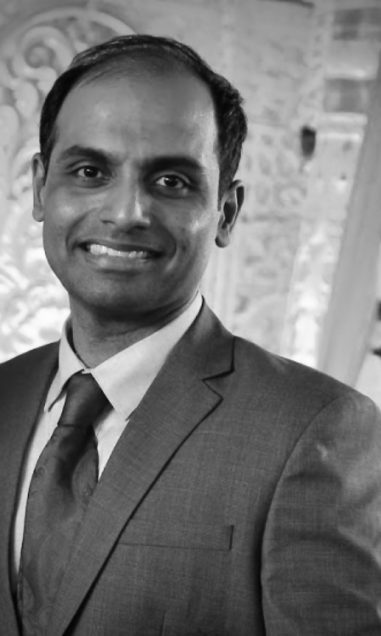 Vijaya Kolachalama, PhD. Dr. Kolachalama’s laboratory is broadly focused on developing advanced machine learning algorithms to tackle complex biomedical datasets, with particular emphasis on medical imaging. Phenotyping neurodegeneration using machine learning: We build machine learning frameworks to process multimodal data and identify specific signatures of neurodegeneration. We have experience in dealing with large data cohorts such as the Framingham Heart Study and established several computational pipelines to efficiently process volumetric images of the brain, neuropathology and other modes of data and use them for further analysis.
Vijaya Kolachalama, PhD. Dr. Kolachalama’s laboratory is broadly focused on developing advanced machine learning algorithms to tackle complex biomedical datasets, with particular emphasis on medical imaging. Phenotyping neurodegeneration using machine learning: We build machine learning frameworks to process multimodal data and identify specific signatures of neurodegeneration. We have experience in dealing with large data cohorts such as the Framingham Heart Study and established several computational pipelines to efficiently process volumetric images of the brain, neuropathology and other modes of data and use them for further analysis.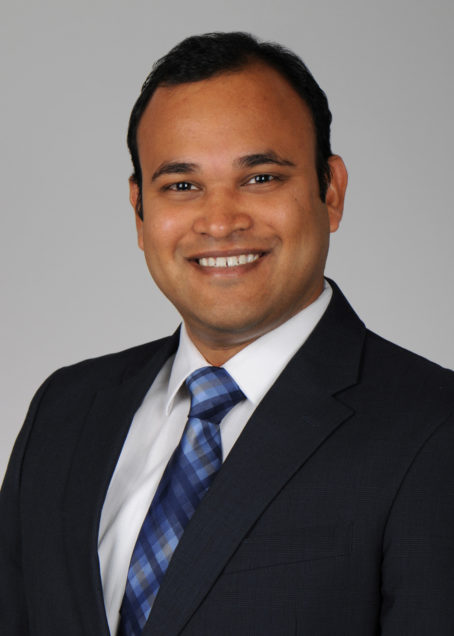
Deepak Kumar PT, PhD is a clinician-scientist investigating the biomechanical mechanisms underlying the onset and progression of knee osteoarthritis, and using this knowledge to develop more effective and personalized interventions that may reduce pain and directly impact patient care. At Boston University, Dr. Kumar directs the Movement & Applied Imaging Lab. His lab utilizes biomechanical, imaging, and functional techniques to assess the quality and quantity of movement, tissue health, and pain in people at-risk of or those with hip or knee osteoarthritis.
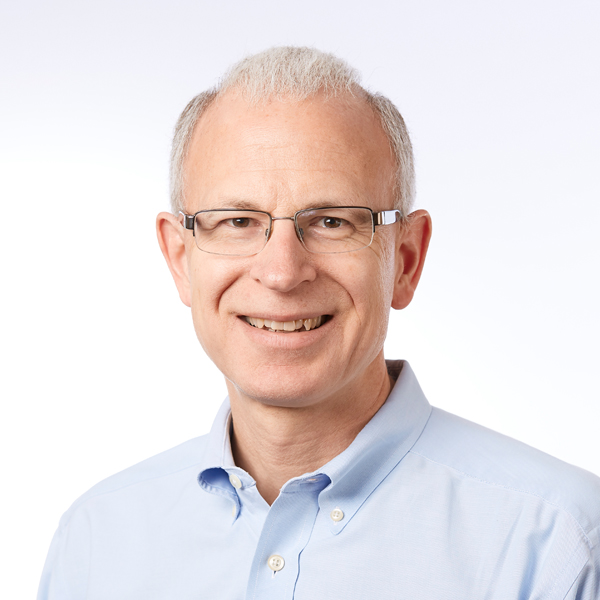
Michael LaValley, PhD is a Professor of Biostatistics at the Boston University School of Public Health, where he teaches courses on meta-analysis, logistic regression, and survival analysis. Mike’s research efforts are focused on meta-analysis of study results, analysis of categorical outcomes, survival analysis, clinical trials, longitudinal data, and outcome assessment in arthritis studies.
 Cara Lewis, PhD The long-term goal of her research is to improve the lives of individuals with chronic musculoskeletal pain and prevent or slow the progression of musculoskeletal damage through improved knowledge of joint function, leading to advanced, targeted intervention strategies. Dr. Lewis’ current focus is on treatment for hip pain, especially in adults with variant hip morphology, such as femoroacetabular impingement syndrome (FAIS) and acetabular dysplasia.
Cara Lewis, PhD The long-term goal of her research is to improve the lives of individuals with chronic musculoskeletal pain and prevent or slow the progression of musculoskeletal damage through improved knowledge of joint function, leading to advanced, targeted intervention strategies. Dr. Lewis’ current focus is on treatment for hip pain, especially in adults with variant hip morphology, such as femoroacetabular impingement syndrome (FAIS) and acetabular dysplasia.
 Michelle Yau, MD, an Assistant Professor of Medicine at Harvard Medical School and the Hinda and Arthur Marcus Institute for Aging Research at Hebrew SeniorLife. She is a genetic epidemiologist with expertise in genome-wide association studies, multi-omics studies, and application of Mendelian Randomization methods to investigations of musculoskeletal traits, including osteoarthritis and osteoporosis. She currently leads an NIA/NIAMS-funded effort to study the epigenetic basis of multiple joint OA in the MOST Study. Other projects include integration of sequencing and epigenetics/proteomics data to identify novel risk factors for OA, application of RNA-sequencing to human tissue explants to identify novel genes underlying bone marrow lesions in OA, and use of Mendelian randomization to examine drug repurposing opportunities in OA.
Michelle Yau, MD, an Assistant Professor of Medicine at Harvard Medical School and the Hinda and Arthur Marcus Institute for Aging Research at Hebrew SeniorLife. She is a genetic epidemiologist with expertise in genome-wide association studies, multi-omics studies, and application of Mendelian Randomization methods to investigations of musculoskeletal traits, including osteoarthritis and osteoporosis. She currently leads an NIA/NIAMS-funded effort to study the epigenetic basis of multiple joint OA in the MOST Study. Other projects include integration of sequencing and epigenetics/proteomics data to identify novel risk factors for OA, application of RNA-sequencing to human tissue explants to identify novel genes underlying bone marrow lesions in OA, and use of Mendelian randomization to examine drug repurposing opportunities in OA.
